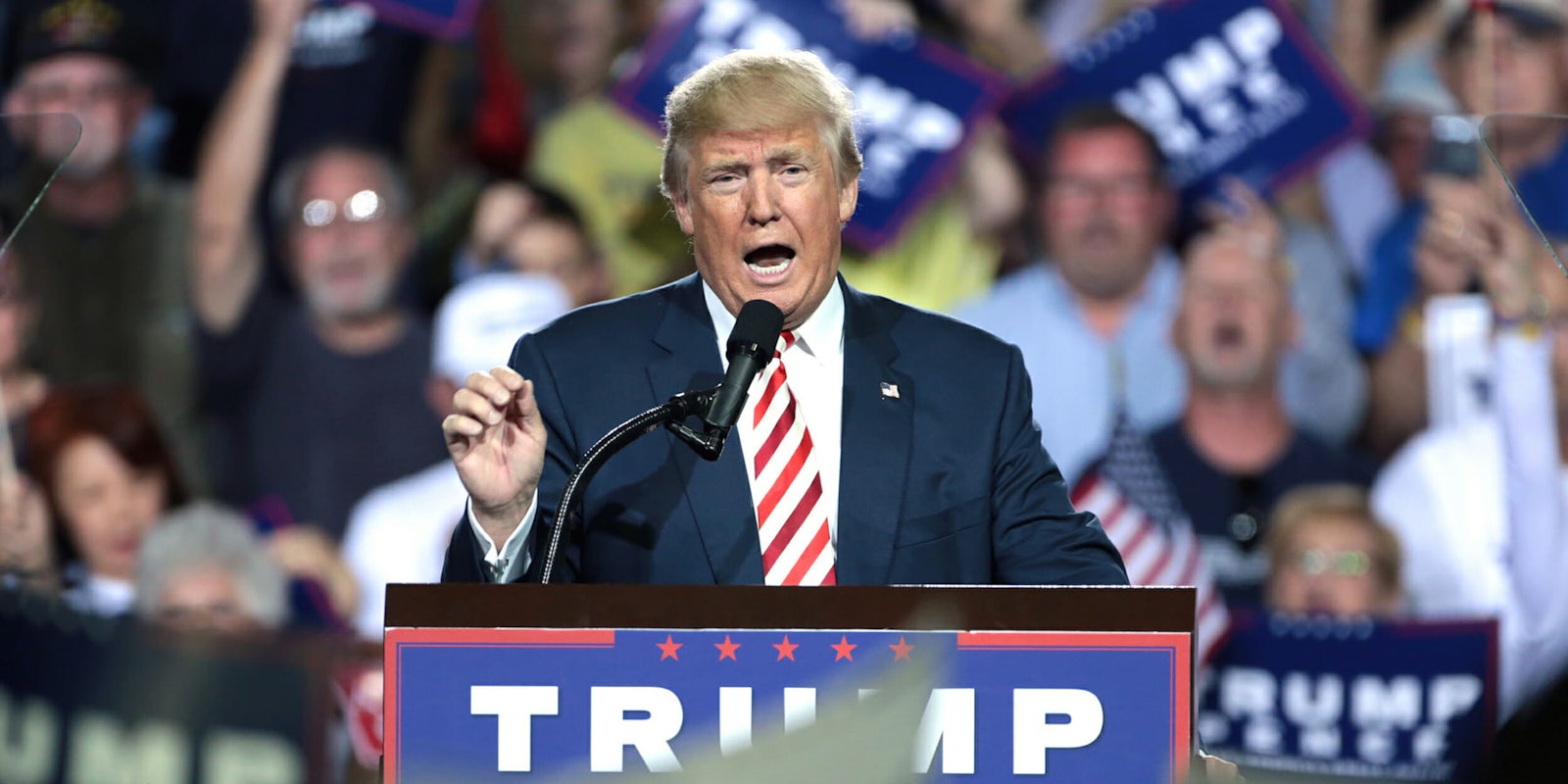President Donald Trump has not yet signed bipartisan legislation condemning white supremacists and neo-Nazi’s that passed through Congress in the wake of the violence that erupted in Charlottesville, Virginia, earlier this summer.
The legislation condemned the white supremacy rally, “urges” Trump to “speak out against hate groups that espouse racism, extremism, xenophobia, anti-Semitism and white supremacy,” Politico reports, and asks Trump to use “all resources available” to curb the “growing prevalence of those hate groups in the United States.”
It also calls on Attorney General Jeff Sessions to work with federal agencies to “investigate thoroughly all acts of violence, intimidation and domestic terrorism by White supremacists, White nationalists, neo-Nazis, the Ku Klux Klan, and associated groups.”
On Tuesday night, the White House implied that it had not yet signed the resolution.
Asked whether president will sign, WH spox says “No announcements at this time.” https://t.co/Scf2yh14AW
— Kyle Cheney (@kyledcheney) September 12, 2017
Trump’s response to Charlottesville was harshly criticized. Following the clash between the large group of white nationalists holding a rally in the small college town and counterprotesters Trump condemned “both sides” for the violence. Heather Heyer, a counterprotester, was killed when a man with suspected neo-Nazi ties rammed his car into a crowd of people.
Trump also said both the counterprotesters and white nationalists groups who clashed in Charlottesville included “very fine people.”
The anti-white supremacy legislation calls the Charlottesville incident a “domestic terrorist attack.” Lawmakers introduced it as a joint resolution rather than a concurrent resolution because it will require Trump to sign it.
The House version of the bill was introduced by Rep. Thomas Garrett (R-Va.) and Rep. Gerald E. Connolly (D-Va.) and the Senate version was introduced by Sen. Mark Warner (D-Va.) and Sen. Tim Kaine (D-Va.). The resolution passed both the House and Senate without debate.


